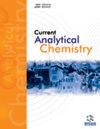Harnessing Machine Learning for QSPR Modeling of Corrosion Inhibitors in HCl for Mild Steel Protection
IF 1.7
4区 化学
Q3 CHEMISTRY, ANALYTICAL
引用次数: 0
Abstract
Background: The corrosion of Mild Steel (MS) in harsh acidic environments, such as Hydrochloric acid (HCl), is a significant industrial issue with environmental consequences. Corrosion inhibitors, particularly those containing heteroatoms and aromatic rings, are a proven method for mitigating corrosion. Traditional methods for studying corrosion inhibitors often require resource- intensive experiments. Methods: This study explores the use of Quantitative Structure-Property Relationship (QSPR) modeling, a Machine Learning (ML) technique, to predict the inhibition efficiency of organic corrosion inhibitors in HCl environments. Several ML models were employed: Linear Regression (LR), Random Forest Regression (RF), Support Vector Regression (SVR), Multilayer Perceptron Regression (MLP), and XGBoost Regression (XGB). Results: The investigation revealed that some models achieved exceptional predictive accuracy with significantly reduced errors and high precision. These models offer a promising avenue for efficient corrosion inhibitor design, reducing reliance on extensive experimentation. Conclusion: This study contributes to the advancement of corrosion science and materials engineering by introducing innovative strategies for developing effective corrosion inhibitors using machinelearning- driven QSPR models.利用机器学习对盐酸缓蚀剂进行 QSPR 建模以保护低碳钢
背景:低碳钢(MS)在盐酸(HCl)等苛刻酸性环境中的腐蚀是一个严重的工业问题,会对环境造成影响。缓蚀剂,尤其是含有杂原子和芳香环的缓蚀剂,是一种行之有效的缓蚀方法。研究缓蚀剂的传统方法通常需要进行资源密集型实验。方法:本研究探索使用机器学习(ML)技术--定量结构-属性关系(QSPR)建模来预测盐酸环境中有机缓蚀剂的缓蚀效率。研究采用了多种 ML 模型:线性回归 (LR)、随机森林回归 (RF)、支持向量回归 (SVR)、多层感知器回归 (MLP) 和 XGBoost 回归 (XGB)。结果显示调查显示,一些模型的预测准确率非常高,误差明显减少,精度也很高。这些模型为高效的缓蚀剂设计提供了一个很好的途径,减少了对大量实验的依赖。结论本研究通过采用机器学习驱动的 QSPR 模型开发有效缓蚀剂的创新策略,为腐蚀科学和材料工程学的发展做出了贡献。
本文章由计算机程序翻译,如有差异,请以英文原文为准。
求助全文
约1分钟内获得全文
求助全文
来源期刊

Current Analytical Chemistry
化学-分析化学
CiteScore
4.10
自引率
0.00%
发文量
90
审稿时长
9 months
期刊介绍:
Current Analytical Chemistry publishes full-length/mini reviews and original research articles on the most recent advances in analytical chemistry. All aspects of the field are represented, including analytical methodology, techniques, and instrumentation in both fundamental and applied research topics of interest to the broad readership of the journal. Current Analytical Chemistry strives to serve as an authoritative source of information in analytical chemistry and in related applications such as biochemical analysis, pharmaceutical research, quantitative biological imaging, novel sensors, and nanotechnology.
 求助内容:
求助内容: 应助结果提醒方式:
应助结果提醒方式:


